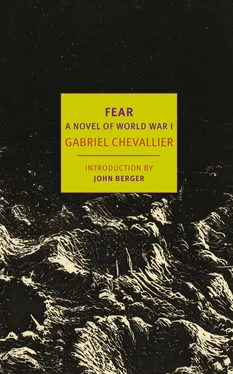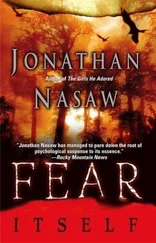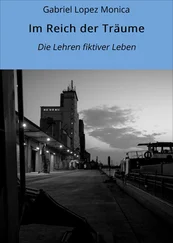Gabriel Chevallier
Fear: A Novel of World War I
ABOUT THE AUTHOR AND THE TRANSLATOR
GABRIEL CHEVALLIER (1895–1969) was the son of a notary clerk and lived in Lyon for most of his life. He was called up at the start of World War I and wounded a year later. Returning to the front, he spent the remainder of the war as an infantryman, and was ultimately awarded the Croix de Guerre and named Chevalier de la Légion d’Honneur. He began writing Fear in 1925 but did not publish it until 1930, a year after his first novel, Durand: voyageur de commerce , was released. Fear was suppressed during World War II and not made available again until 1951, by which time Chevallier had earned international fame for his Clochemerle (1934), a comedy of provincial French manners of the Beaujolais region that sold several million copies. In all Chevallier would write twenty-one novels, including several more set in the fictional village of Clochemerle.
JOHN BERGER is the author of numerous works of fiction and nonfiction, including To the Wedding , the Into Their Labours trilogy, About Looking, Ways of Seeing , and G. , for which he won the Booker Prize. His most recent book is Understanding a Photograph , a collection of his writings about photography, edited by Geoff Dyer. He lives in a small rural community in France.
MALCOLM IMRIE’s translations from the French include Guy Debord’s Comments on the Society of the Spectacle and José Pierre’s Investigating Sex: Surrealist Discussions 1928–1932 . His translation of Gabriel Chevallier’s Fear won the Scott Moncrieff Prize, the most prestigious award for a French-to-English translation.
INTRODUCTION. THE IMPERATIVE NEED
‘THE YELLOW LIGHT OF A DAY that seemed to falter as if it too was struck by horror, illuminated a lifeless, soundless battlefield. It was as if everything around us and off into infinity was dead, and we did not dare raise our voices. It felt as if we had come to some place in the world which was part of a dream, that had gone beyond all the limits of reality and hope.’
The ‘we’ refers to French soldiers ( poilus , not officers) serving in the trenches. The ‘place’ is near Douai in Flanders. The horrific experiences related in this book were lived almost a century ago. 1914–1918. The book itself was first published in 1930. My guess is that it took several years to write because indignation — more often than not, and contrary to what one might expect — slows writing down.
What this written book achieves, however, is of the utmost urgency and relevance today. As a graphic day-to-day account of survival, pain and death in the trenches, dugouts and saps, it is unique and almost insupportable, and, at the same time, it is about something more: about the endless outrages which separate official bulletins (and then History books) from the millions of maimed and lost lives on the killing fields.
Its fury is directed against the deliberate and manufactured ignorance existing between speeches and bloodshed. The ignorance not of those on the ground and under fire, but of the war leaders and decision-making commanders.
Most rulers lie, yet lies are less shocking, less corrosive than the chosen, cultivated ignorance Chevallier addresses here. This ignorance denies the reality of anything which provokes pity. It is an error to think of such war leaders (or, today, economic strategists) as pitiless; they are abject. And this is what we have to learn and act upon. They are abject.
At the literary checkpoints this book probably claimed to be a novel. It isn’t. A memoir, then, for Chevallier himself served in the trenches. It isn’t a memoir. A passionate plea, then, plea for pacifism. Again it won’t pass. It’s a book without papers. Consisting of what? A chorus of voices. It’s a choral work. The voices have come together to break a silence, the silence of deliberate ignorance, and to fill it with stories and descriptions and remarks and confessions until now unheard. This book, wonderfully translated, is like a choral avalanche of anger, pity and hopes deferred. I can think of three other books which are comparable avalanches: Tolstoy’s Resurrection , Victor Serge’s Years Without Pity and Andrei Platanov’s Chevengur . Such great books wait a long while before being finally admitted for what they are.
When I write that, I think of my father reading this book, which he never did. He endured four years in the trenches with the British infantry. I was born eight years after the end of the war. But the war was part of the map with which I tried to find my way about, during my early childhood, my adolescence, and later too. The war marked an area on that map which covered one of the extreme limits of human experience, close to the tragic, unanswerable, but, unlike the tragic, silent and perhaps futile.
My father talked about the experience of those four years to nobody. Or anyway that was my impression. In my presence he would sometimes finger and look at his mementos: a field compass, a revolver, some trench maps, a few letters and lists, some machine-gun rounds, the ring of a hand grenade. Sometimes he named them but said no more. The rest was indescribable, and the fact that I was a child, to whom so much was still indescribable, made this sharing natural and possible.
When I was nearly fifty, I wrote a poem about the battlefields of Ypres, which are about sixty miles to the north of Douai. I gave it to my father. He read it — he did not read many poems — he looked at me, he lowered his eyelids, then he nodded, folded the paper in four and slipped it into his pocket.
Base: fields whose mud is waterlogged
Perpendicular: thin larches
planted in rows
with broken
branches
Horizontal: brick walls the colour of
dead horses
Sinking: lower
and lower
houses with dark windows
Sometimes a wall is white-washed
a rectangle of dead lime
under the indifferent clouds
Here all poultry should have webbed feet
At dusk drowned soldiers cross the field to steal chickens
Through base
perpendicular
and horizontal
there is order:
the order of split wood
broken branches
walls the colour of dead horses
and roofs fallen in
There is no way out except across
Nothing reaches any heaven from here
Between earth and sky there is
a transparent canopy
plaited from cock crows
and the cries of soldiers
This book consists of the chorus of the cries of those soldiers. And I believe that if my father had read it and heard the silence filled, he would have been confirmed by the declared pain and anger, by the raised voices and by the imperative need for us today to learn from them.
John Berger
John Berger’s poem appeared in his Pages of the Wound: Poems, Drawings, Photographs, 1956–96 , Bloomsbury, 1996.
FEAR: A NOVEL OF WORLD WAR I
‘Can anything be more ridiculous than that a man should have the right to kill me because he lives on the other side of the sea, and because his ruler has a quarrel with mine, though I have none with him.’
Pascal, Pensées
EXTRACT FROM THE PREFACE TO THE 1951 EDITION
FIRST PUBLISHED IN 1930, this anti-war book had the misfortune to run into a new one.[1] In 1939, its author and publisher freely agreed to suspend sales. Once war has come, the time has passed for warning that it is a disastrous venture with unforeseeable consequences. That is something that must be understood earlier, and acted on accordingly.
Читать дальше












